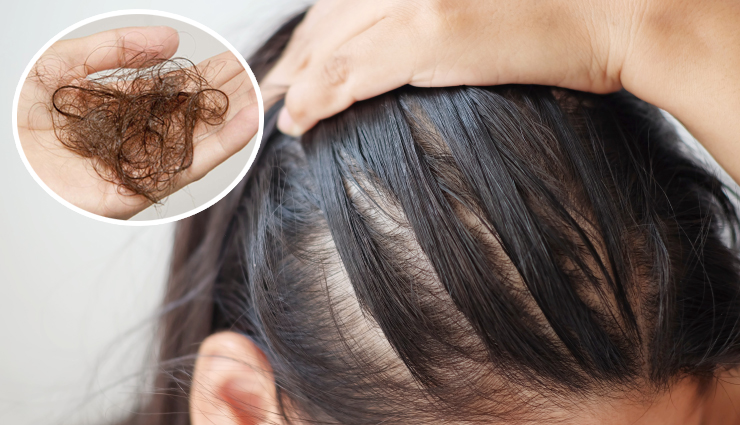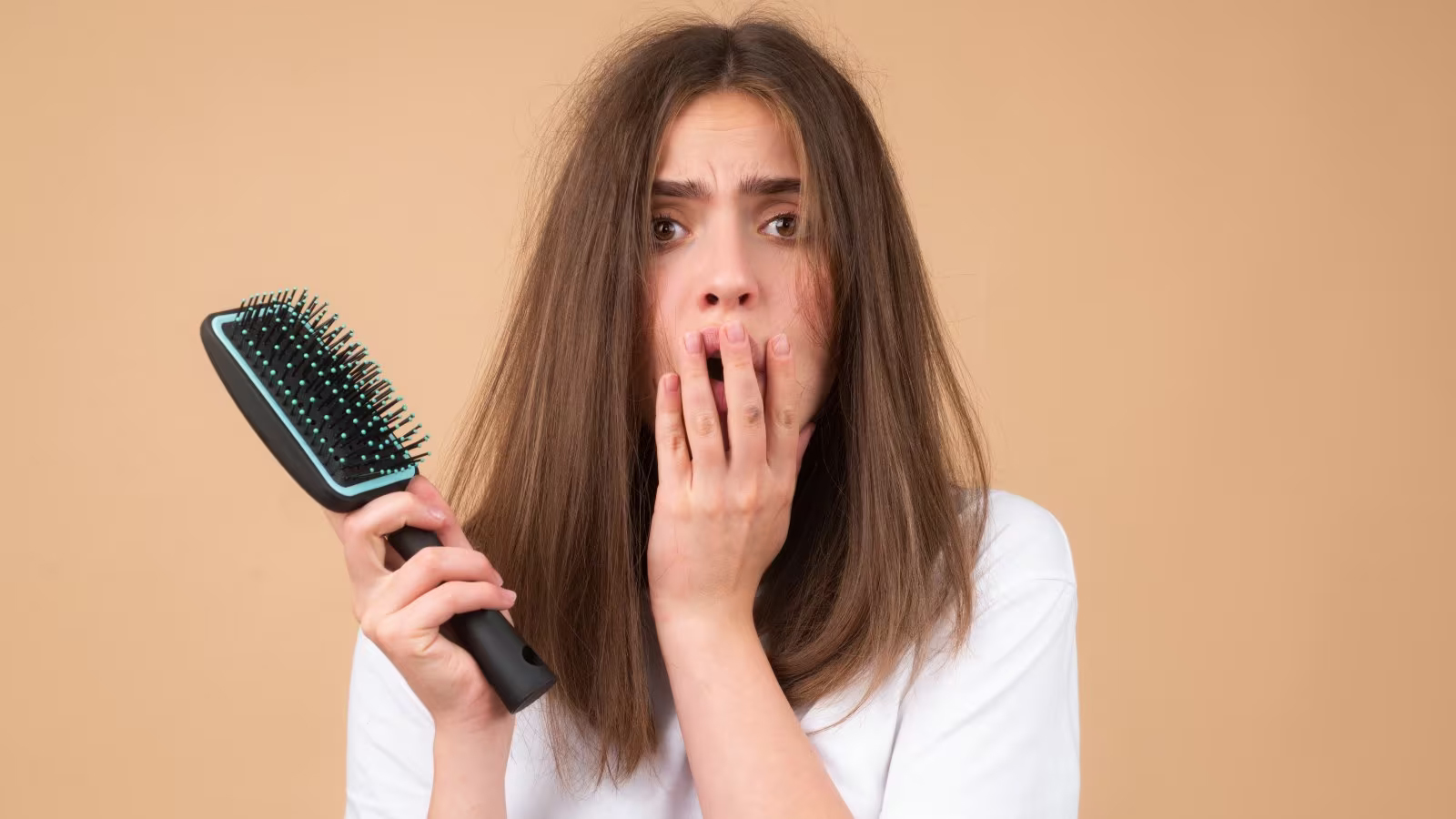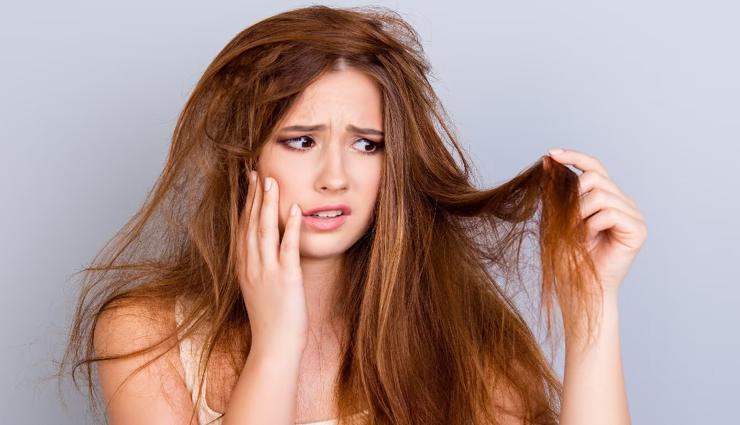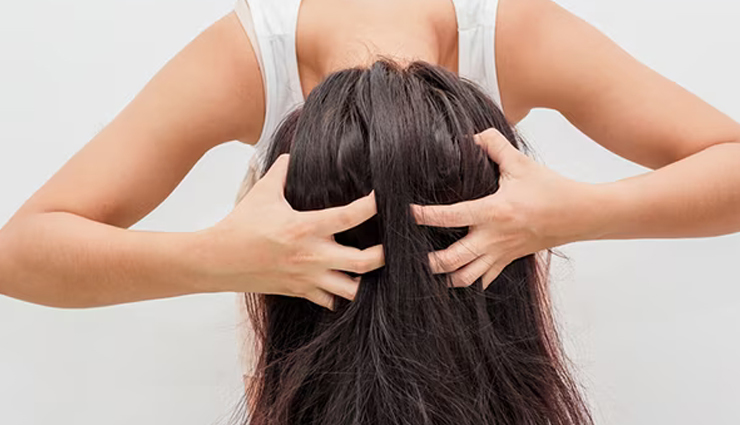15 Vitamin Deficiency That Causes Hair Loss
By: Priyanka Maheshwari Wed, 09 Aug 2023 11:46:13

Concerned about ongoing hair loss? Were you aware that inadequate vitamin levels can lead to hair loss? Hair loss, a prevalent condition affecting more than 90% of both men and women, will be the topic of discussion in this article.
Vitamins, among the six essential nutrients crucial for human survival, are one vital component. The others include proteins, carbohydrates, lipids, water, and minerals. The prolonged lack of any vitamin is termed as vitamin deficiency. Primary deficiency stems from insufficient vitamin intake, while secondary deficiency arises from underlying conditions such as malabsorption.
Your diminishing hair could be attributed to a deficiency in vitamins. Curious about which vitamin deficiency contributes to hair fall? Discover the 15 vitamin deficiencies that are potentially responsible for thinning hair:

# Vitamin D
Based on scientific findings, vitamin D has a crucial function in promoting the development of your hair follicles. Within keratinocytes, the skin cells responsible for breaking down keratin, a vital hair protein, vitamin D is present. Consequently, insufficient levels of vitamin D can interrupt the natural growth cycle of hair follicles.
# Vitamin A
In the context of hair loss, vitamin A possesses unique attributes. It plays a pivotal role in supporting the immune system's capacity to safeguard hair follicles, as well as in facilitating the processes of hair cell growth and multiplication.
# Vitamin C
Surprisingly, vitamin C also emerges as a frequent factor in hair loss. The pivotal function of vitamin C lies in its ability to enhance the absorption of iron within the intestines, thereby making a significant impact.

# Vitamin E
Vitamin E stands as a crucial antioxidant that dissolves in fats. As indicated by researchers, the antioxidant properties of vitamin E effectively combat oxidative stress and the harm caused by free radicals, which are prevalent in various forms of hair loss.
# Vitamin B2
Vitamin B2, also known as riboflavin, emerges as a recurrent deficiency associated with hair loss. This is primarily due to the necessity of this vitamin in numerous functions, including cell growth, metabolism of fats, and the generation of energy.
# Vitamin B5
Vitamin B5 plays a fundamental role in the production of red blood cells, responsible for supplying oxygen and nutrients to the hair follicles. This process is indispensable, as insufficiency of vitamin B5 can lead to premature greying, hair thinning, and the development of dry, irritated skin on the scalp.
# Pyridoxine(vitamin B6)
Vitamin B6 can regulate the levels of androgens and other hormones that govern the process of hair growth. As a result, a deficiency in vitamin B6 is another prevalent factor in hair loss.

# Vitamin B7
A frequently encountered reason for hair loss is the insufficient presence of vitamin B7, commonly referred to as biotin. Inadequate biotin levels can lead to hair becoming brittle and prone to breakage, along with contributing to the development of a parched and irritated scalp.
# Vitamin B9
Vitamin B9 is recognized under the names folic acid (in its synthetic form) and folate (in its natural form). According to research findings, a scarcity of folate is observed in individuals experiencing female pattern baldness and telogen effluvium. Consequently, vitamin B9 deficiency becomes another significant factor in female hair loss.
# Vitamin B12
Hair loss due to deficiency of vitamin B12 is prevalent in the current times. After all, this micronutrient plays a vital role in the synthesis of red blood cells and DNA, crucial elements for the growth of new hair. Consequently, when there is an insufficiency of vitamin B12, hair follicles struggle to initiate the growth of new strands of hair.

# Iron
Iron, a protein essential for creating hemoglobin, facilitates the transportation of oxygen to all cells within your body, including those in your hair follicles. According to a study, iron deficiency influences the genes reliant on iron in the bulge region of hair follicles.
# Zinc
Zinc plays a crucial role in preserving the optimal operation of the oil glands encircling hair follicles. Consequently, a deficiency in zinc stands as a primary contributor to conditions like telogen effluvium, which can lead to brittle hair.
# Selenium
Selenium boasts remarkable antioxidant qualities that oversee your metabolic functions. Nonetheless, selenium's importance extends to the production of thyroid hormones, which play a key role in regulating hair growth. Therefore, an insufficiency of selenium can result in hair loss.
# Fatty acids
The presence of essential Omega-3 and Omega-6 fatty acids is pivotal for stimulating hair growth and reducing inflammation. When there is a deficiency in these fatty acids, both your scalp hair and eyebrows can experience the onset of hair loss.
# Magnesium
Magnesium plays a vital role in over 700 functions within your body, encompassing the creation of hair follicles and the process of hair growth. An insufficiency in magnesium can contribute to issues such as premature greying and hair loss.





